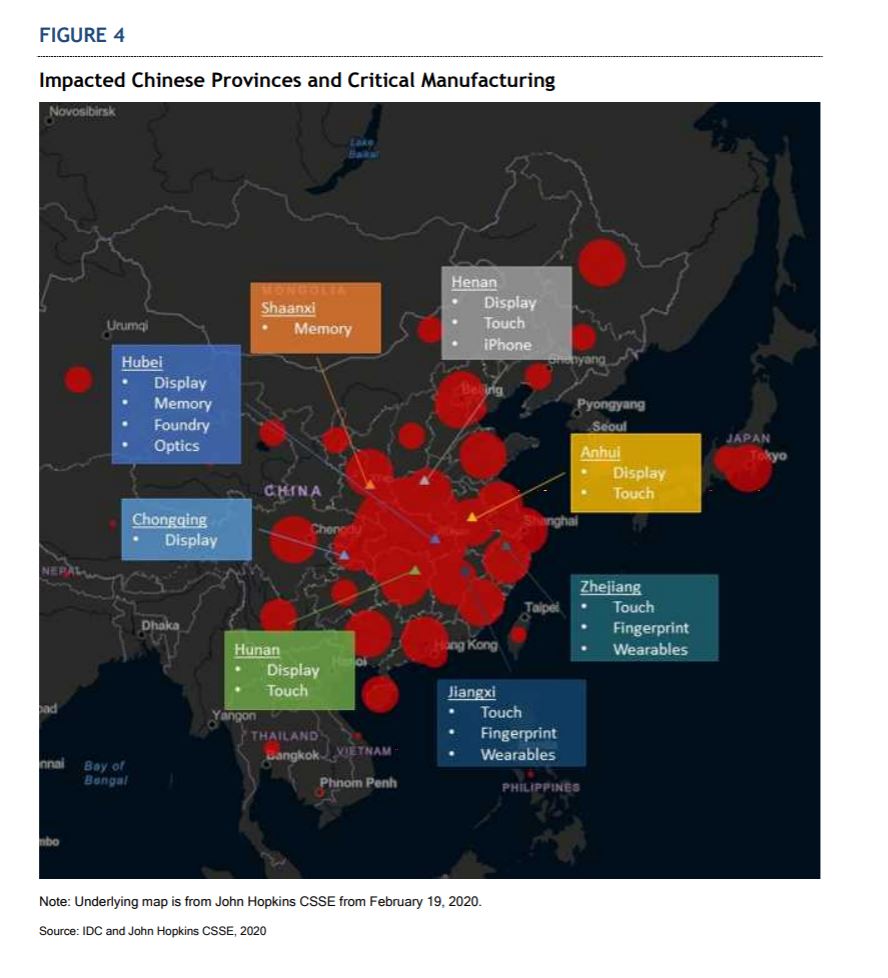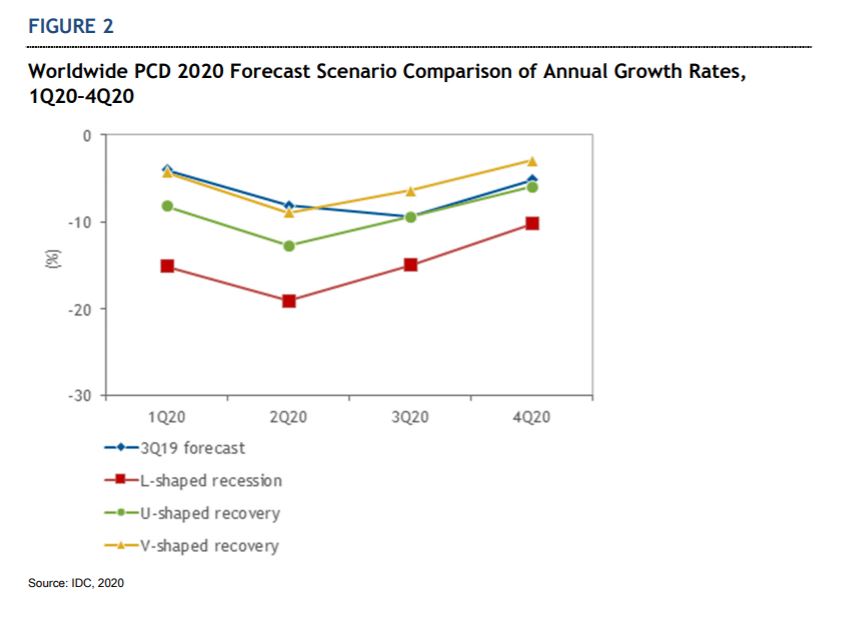With files from Alex Coop
The spreading of Coronavirus has curtailed production in the tech industry, a new IDC study finds.
Most affected sectors include factory, logistics, and transportation, many of them located in China, but the effects can be felt worldwide.
“As is stands, device manufacturing will be decimated in February with uncertainty for March and beyond until the epidemic stabilizes at the very least,” the report says.
In an effort to quarantine the virus, the Chinese government imposed travel and work suspensions across the country between Lunar new year to Feb. 16th.

And while the outbreak in China has slowed, the number of reported cases has spiked in other areas. Cases have been reported in all continents of the world.
According to IDC, the global smartphone and PC markets will likely be substantially affected by the virus. Its effects may persist throughout the year depending on the developing situation.
IDC predicts that the system manufacturing ecosystem will not return to full health until the middle or end of Q2 2020.
The fear of infection is just as potent as the virus’s contagiousness. The 2019 coronavirus, formally known as COVID-19, has eviscerated the technology trade show business. This morning, Shopify told IT World Canada in an email that it was cancelling the in-person element of Shopify Unite this year.
GSMA cancelled Mobile World Congress, its annual Barcelona event, in February after a number of exhibitors decided to pull out. Facebook has just recently cancelled its F8 developer event under the same pretext, and IDC scrapped its Santa Clara Directions technology conference. These are just a handful of affected trade shows among a list of many.
“It’s a really tricky thing to navigate,” said Lars Goransson general manager and group vice-president, IDC Canada, adding there are currently no plans to cancel its Directions event in Toronto April 7. “We’re going to continue to monitor the situation for the next week or two, but it’s a challenging environment.”
These cancellations paint a gloomy picture for coming events like Apple’s WWDC 2020 and the Tokyo Summer Olympics.
Stocks feel the pinch
The global stock market reflected virus’ outreach. In a seven-day decline, the DOW faced the biggest weekly losses since 2008, plunging over 1,000 points.
Both Apple and Microsoft warned that they may not be able to meet quarterly revenue guidance due to COVID-19.
“Although we see strong Windows demand in line with our expectations, the supply chain is returning to normal operations at a slower pace than anticipated at the time of our Q2 earnings call,” Microsoft said in a press release. “As a result, for the third quarter of fiscal year 2020, we do not expect to meet our More Personal Computing segment guidance as Windows OEM and Surface are more negatively impacted than previously anticipated.”
Despite the system component stock being “unusually healthy” due to high-production in December, their distribution is choked by the slowed supply logistics. In addition, COVID-19 presents a persistent threat to production. A poignant example occurred on Feb. 22nd when Samsung temporarily closed one of its smartphone factories in Korea after a factory worker was tested positive for the virus.
In an optimistic scenario, IDC’s report says the supply chain disruption to revive in the current quarter in a speedy V-shaped recovery. But at worst, IDC foresees the supply disruptions to last throughout the year and regress into a L-shaped recession if Chinese production continues to be impacted.
 IDC said smartphones may be impacted the most due to their fragmented sources of and proprietary supply chain. PCs will be less affected since most component manufacturers are located in China. But as factories resumed business on Feb 17, Apple CEO Tim Cook said he trusts China’s ability to control the outbreak.
IDC said smartphones may be impacted the most due to their fragmented sources of and proprietary supply chain. PCs will be less affected since most component manufacturers are located in China. But as factories resumed business on Feb 17, Apple CEO Tim Cook said he trusts China’s ability to control the outbreak.
“iPhone is built everywhere in the world,” said Cook in an interview with Fox Business transcribed by the Verge. “When you look at the parts that are done in China, we have reopened factories, so the factories were able to work through the conditions to reopen. They’re reopening. They’re also en-ramp, and so I think of this as sort of the third phase of getting back to normal. And we’re in phase three of the ramp mode.”
So far, there have been 75,204 confirmed COVID-19 cases globally and 2,009 deaths. As of Feb. 28, Canada has 14 confirmed cases–seven in Ontario and seven in British Columbia. The Public Health Agency of Canada currently deems the virus’ public health risk to be low.
